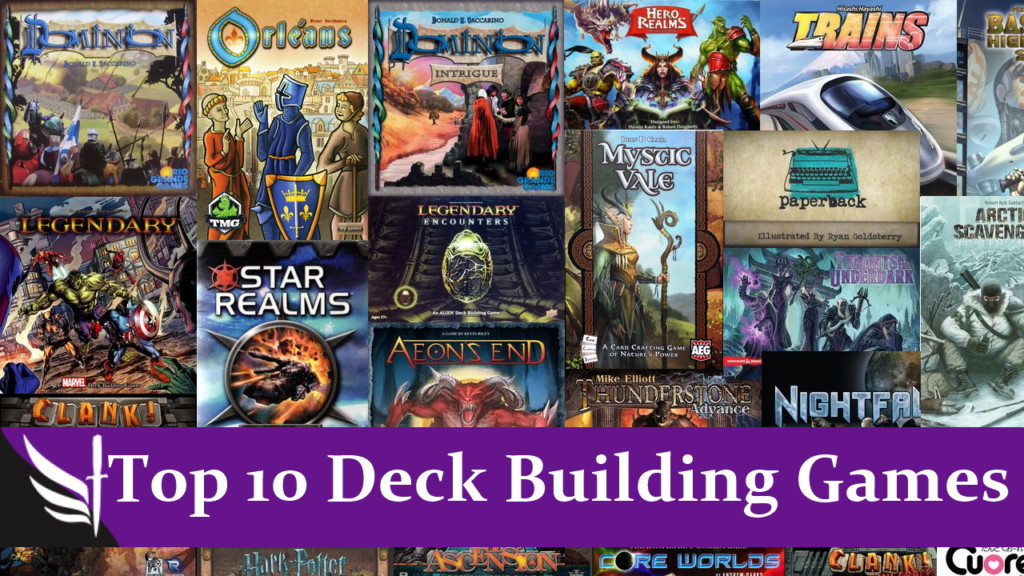Deck-Building Games
Deck-building games have had a rise, fall and minor rise in popularity and this fluctuation is sure to continue.
Here is everything you need to know.
My Top 10 Deck-Building Games
This is the list of my favourite deck-building games. I picked those that are pure deck-builders, not those that have deck building as a smaller part of the game.
What are deck-building games?
How do deck-building games work?
The basics of a deck-building game are players will start the game with the same or similar deck of relatively poor cards. These will provide a resource valued at 1 or 0 per card.
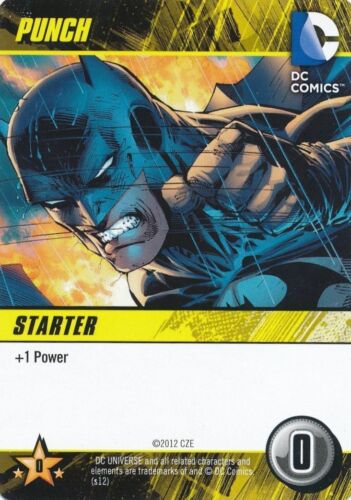
During the game, players will play these cards to generate a resource that players will spend to ‘buy’ more advanced cards to add to their deck.
These cards will generally give you more of that same resource, but in larger quantities per card played.
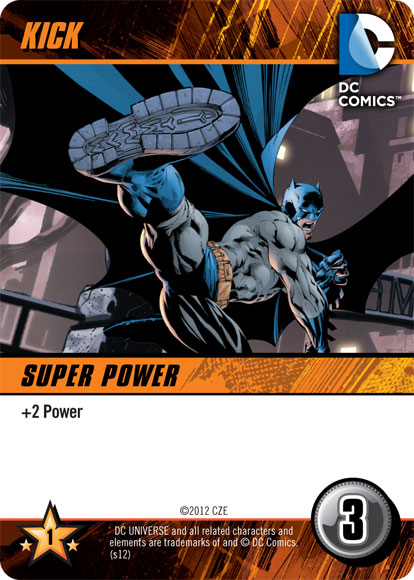
At the end of a turn, the played and purchased cards are discarded and a new hand is drawn. When there are no more cards in a players deck, the discard pile is shuffled to create a new deck.
This will now include the existing poor cards and the newly purchased ‘better’ ones.
The goal of each game is different but it generally revolves around reaching a target, scoring points or defeating your opponent or a villain.
Resources
The cards will allow you to spend a resource. this is usually either money to buy new cards or attack to deal damage.
In most games, there is more than one resource. In this case, some cards will give you gold to buy, others attack to deal damage and in some cases, cards will do both. It’s up to you to balance your deck as you play.
Other important actions
It isn’t always about gaining resources. Some cards will allow you to draw more cards which will give you more options on a turn. Some will let you draw a card and gain resources. These combined cards usually cost more due to their versatility.
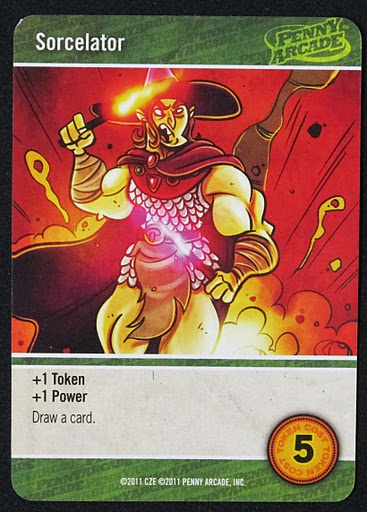
Some cards will allow you to permanently remove cards from the game. This is a key action in deck-building games as the more you do it, the fewer of those original poor quality cards you’ll draw later on.
Free play vs action points
This refers to how you play cards from your hand.
Some games you’re free to play as many cards as you have. If you draw more, you can play them for their ability, no restriction.
Some games have action points. Maybe they restrict how many cards you can play on a turn or how many cards you can buy. In these games, cards you buy may you give you additional actions allowing you to build an engine of sorts, chaining many actions together.
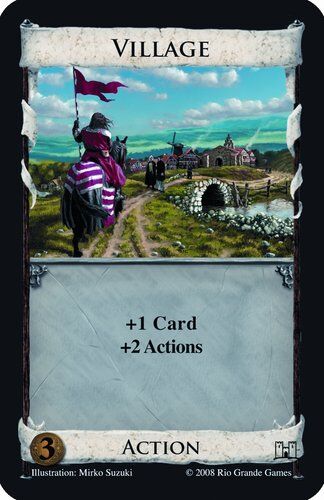
Fixed piles vs ever changing row
This refers to how the game is setup.
Some have a number of fixed piles of the same card. Players can freely buy the top card from any of these piles until that pile runs out. Usually, there are a few fixed cards in every game with changing additional cards for variety.
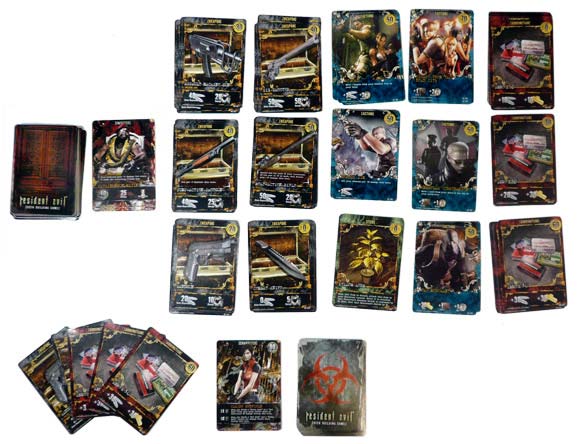
The ever-changing row is a few cards flipped over from a shuffled deck. Usually, this deck is the same every game but the order these cards are revealed will always be different. As cards are bought from the row, they are replaced ready for the next player.
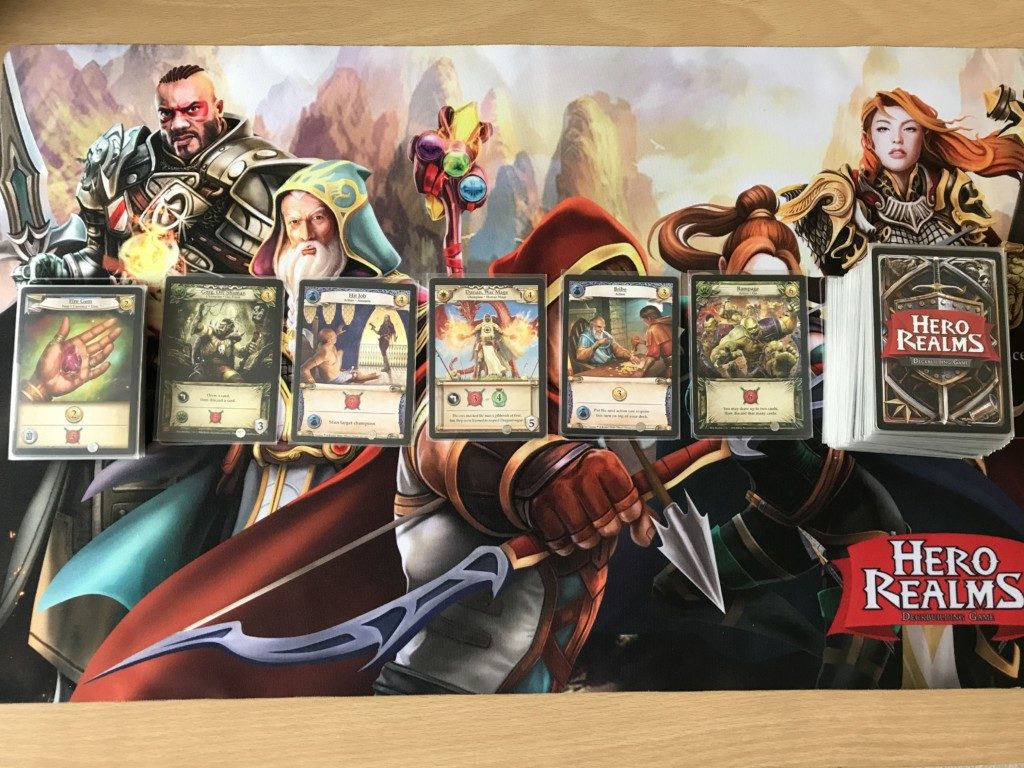
Deck-building as part of a larger game
As deck-building games became popular there were being released on an almost weekly basis. The ability to easily paste on a theme or IP saw these games pumped out and were seen as a ‘cash in’. This is when the popularity started to drop.
But, the good ones were rising to the top so it still had popularity as a mechanism.
The balance here was to build a game around it. This is either deck-building alongside other mechanisms or a larger game that is driven by deck-building.
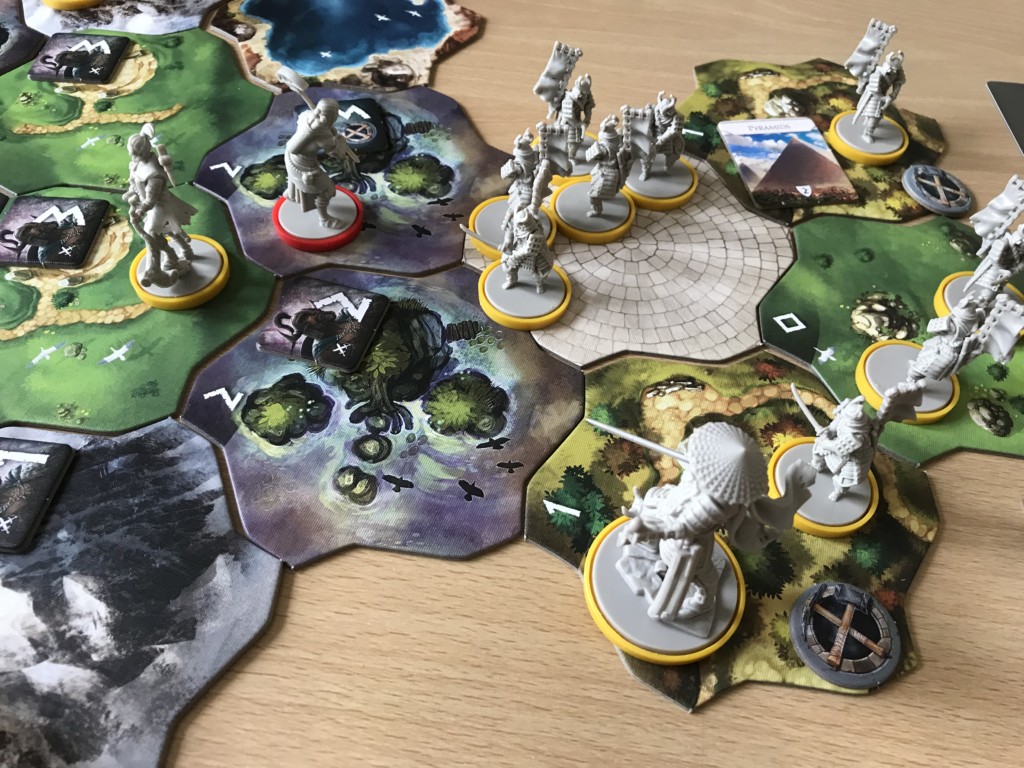
What was the first deck-building game?
The first deck-building game was Dominion which was introduced in 2008. There are rumours that Arctic Scavengers was actually designed first but Dominion was seen to be more marketable so was delayed to the following year. How true is that? No idea.
Do all deck-building games use cards?
No! Games like Automobiles use Cubes, Dice Masters use Dice and Orléans uses Disks. All of these are drawn from a bag and are generally referred to as ‘Bag Builders’. Again, this was due to the term deck-building waning in popularity so publishers moved away from it.
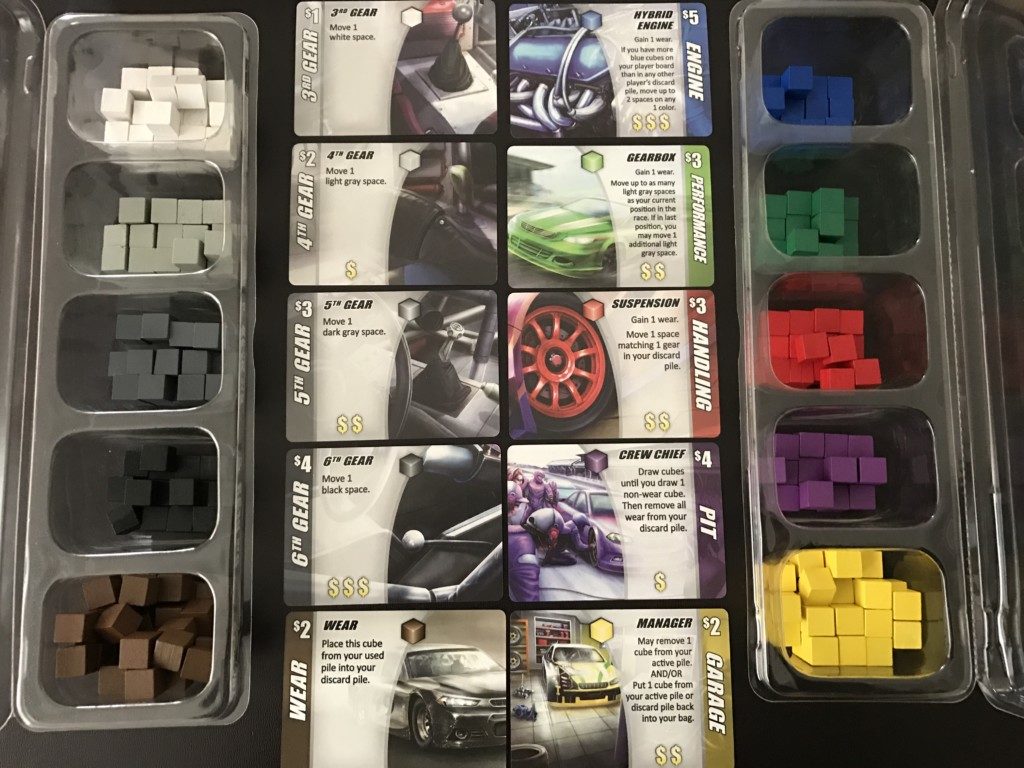
Is Magic the Gathering a deck-building game?
No. In deckbuilding games, one of the main factors is you build and craft your deck DURING a game. Magic the Gathering and similar games ask that players build a deck BEFORE the game begins and (mostly) only use cards in that deck throughout. So, even though you build a deck, it is not a deck-building game.
What is a Roguelike deck-building game?
These are digital deck-building games that are played through a procedurally generated story. They came out in 2014 with Dream Quest and were made super popular in 2019 with Slay the Spire.
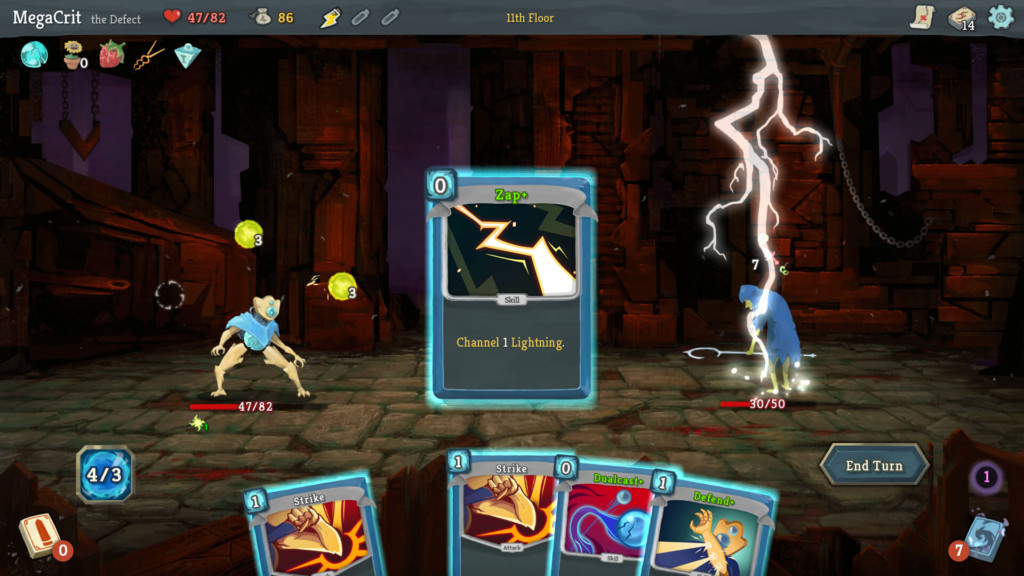
Being digital, it allows for actions that can not be taken in a physical game such as changes to a card that differ each time it’s drawn.
What is the Best Deck-Building Game?
These are listed by BGG ranking for ‘Deck, Bag & Pool Building’ games as of August 2020. This includes all games, even those that have a deck/bag/pool building element as a minor part of the game.
10 – The Quacks of Quedlinburg
This mixes bag building with push your luck. You’re putting potion ingredient tokens into a bowl with each token you add having a value and an effect. The higher the value the further you push it around your potion bowl giving your more points and income.
Some of these tokens ‘explode’ and if you pull out 8 or more in value of those ingredients you bust your turn.
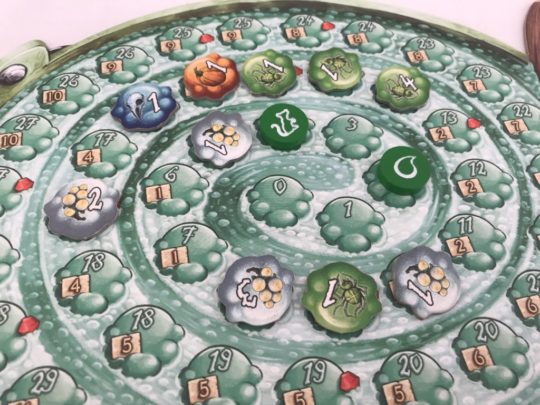
After doing this, you can then buy more ingredient tokens which will go into your bag along with everything you’ve played this turn.
So this is like playing cards, buying cards then shuffling your deck and discard pile from a deck-building point of view.
For more info, watch my Quacks of Quedlinburg review.
9 – Aeon’s End
I haven’t played this one but I would like to.
You have a baddie with their own deck and each player has a character board with their own starting deck but also a specific starting hand of cards.
Turn order is variable on the flip of a deck of cards to simulate the chaos of battle which sounds cool. You can also spend resources to prep spells and charge your ability. It sounds fun.
Defeat the Baddie before it kills you or destroys the village.
For me, it’s halfway between Hero Realms and Marvel Champions.
8 – Dominion: Intrigue
This is a standalone expansion for Dominion that was released as a pure expansion later on.
It adds more cards and allows for additional players. I’ve only played Dominion once and I’m not up on the product so no idea why this is more popular than the base game on BGG.
But it’s a game with set piles of cards and actions for buying, I’m not a fan of the theme and theme means a lot to me in deck builkding games..
7 – Mombasa
One of my favourite Euros. You play cards to allow you to take many actions to do a lot of stuff around the board. This includes buying new cards, expanding your trading posts, moving on different tracks etc
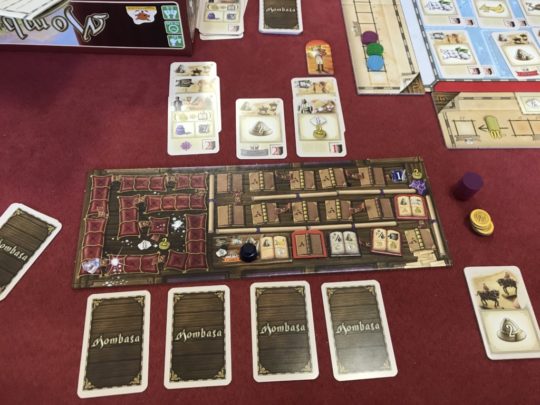
The deck-building part is interesting. You play 3 face-down cards and activate them on your turn. After, these 3 cards are split into 3 different discard piles, only one of which you return to you hand.
So you could play 3 cards of the same resource and have a really good turn for that particular action, but then they split up. It takes a while to get these cards back in your hand again.
I really like this mechanism, it’s very unique and works really well.
Learn How to play Mombasa with my 6 minute video.
6 – Too Many Bones
I haven’t played this but I want to. I’ve read reviews and watched videos and I really don’t get the appeal so I want to experience it myself.
Players have a Character mat with holes to add dice to increase stats add abilities etc Combat is done on a board via dice rolls and tactical positioning against enemy chips.
I don’t see any deck, pool or bag building. Unless the dice you gain that you add to your playmat counts as pool building? This seems more like Sagrada or Roll Player and neither of these games falls into this category.
5 – Clank!: A Deck-Building Adventure
This is more your standard deck-building game with free to play cards and an ever-changing row to buy from.
You’re racing into a dungeon to collect treasure and get out. But more powerful cards create noise which can awaken a Dragon and deal damage to the players in the dungeon.
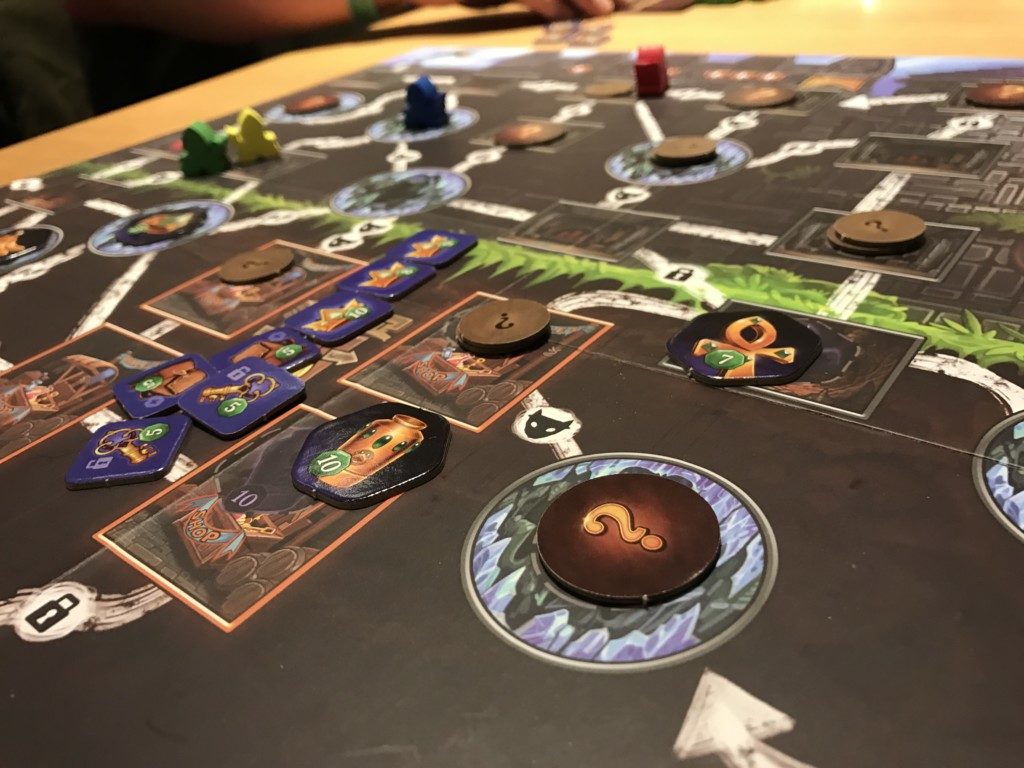
It’s an interesting system, especially simulating sneaking around a dungeon. But, I’m not as much of a fan of this as most other people.
Read my Clank! Review from when I played it at Essen in 2016.
4 – Orléans
This is a bag building game played with tokens. Players are pulling tokens representing people out of a bag to fill matching colour circles on a town board.
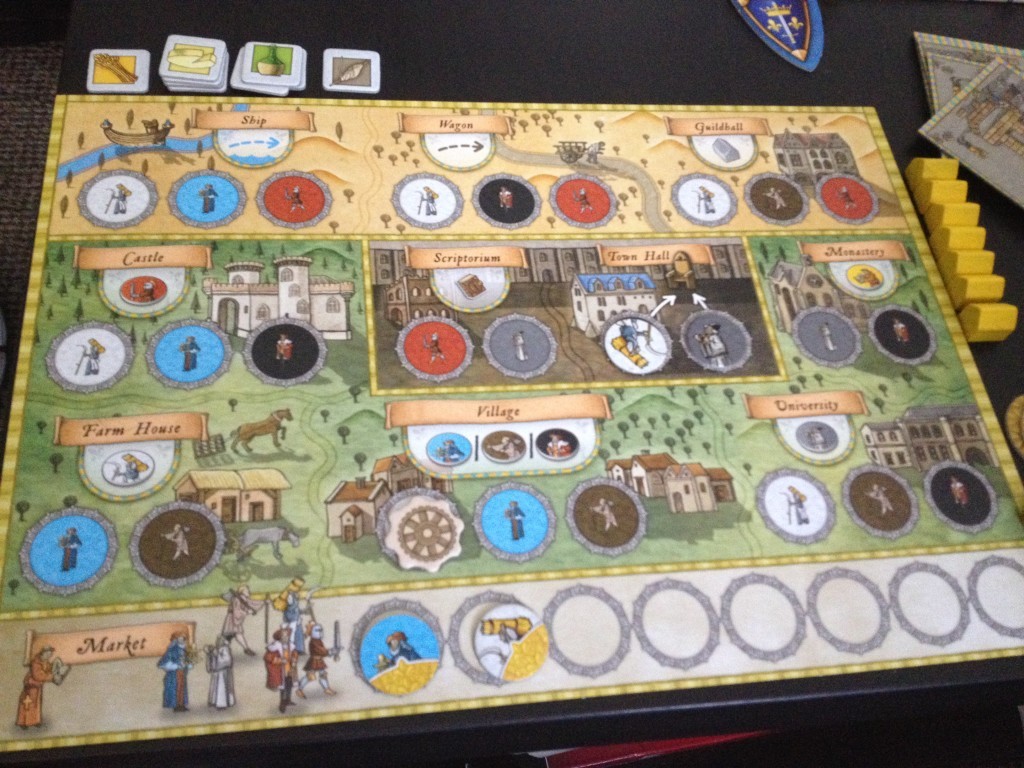
When that section is full you take the action of that space. The tokens used then go back in your bag.
It’s not for me, but it is VERY popular. You can read my very brief review of Orléans here.
3 – Mage Knight Board Game
This is a fantasy game where players use deck-building to move, attack and buy equipment. Damage cards block up your hand and are worth negative end game points so take care in combat! There’s a lot going on in this, it’s a deep game and I mention in my Mage Knight Review that I still didn’t fully understand combat at the end.
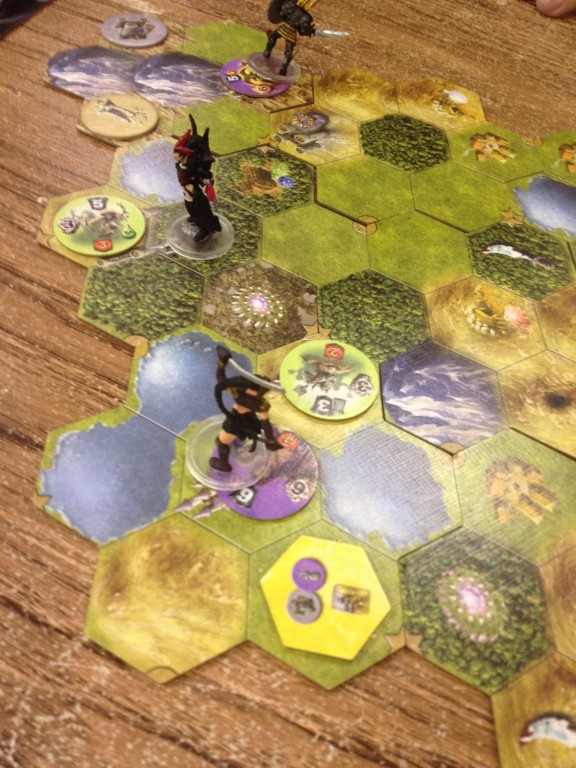
But you better have time to play as it as it’s a long one running in at 3-4 hours per epic adventure.
2 – Great Western Trail
This game restricts it’s deck-building to the buying and selling of cows. There are a load of other mechanisms in the game, like Mombasa from earlier in the list with deck-building restricted to this one part. But, it’s an important part.
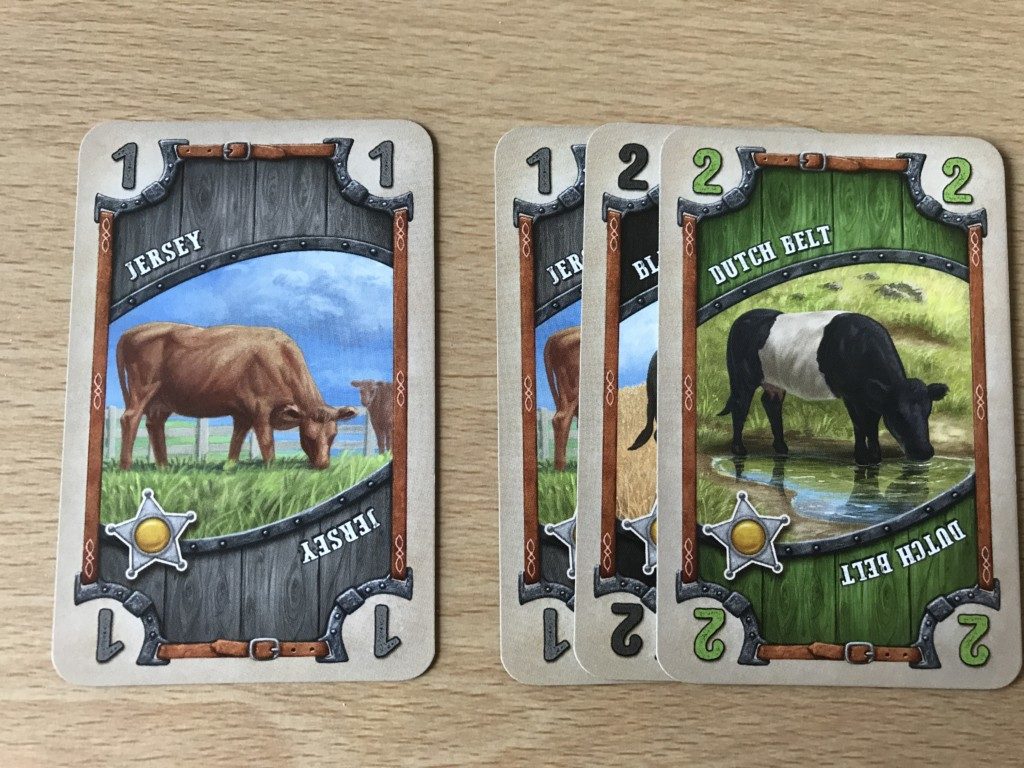
So if buying cows and shipping them off to their death sounds like a game for you, you can read my Great Western Trail review here.
1 – Gloomhaven
Not one I’ve played physically, only digitally over on my Twitch channel. Also, I haven’t played a campaign or anything yet so I’m not sure how the deck changes over several games.
I also wouldn’t call this a deck-building game, it’s more hand management than anything, bordering on pool-building.
You play any 2 cards from your hand and you need to rest to get them back. It’s not really deck building, but it’s a decent system that is, again, VERY popular.
List of Deck-Building Games
Here is a list of deck building games (or games with a deck-building element) I have reviewed. If you want to know what I think of them or want to discover a new game you maybe haven’t heard of, this list is for you:
- Blackout: Hong Kong
- Blood Bowl: Team Manager
- Book It! The Pro Wrestling Promotion Card Game
- City of Iron
- Clank!
- DC Comics Deck-Building Game
- Dice Masters
- Dominion
- Eminent Domain
- Great Western Trail
- Harry Potter: Hogwarts Battle
- Hero Realms
- Heroes of Metro City
- Legendary: Buffy the Vampire Slayer & Marvel
- Legendary Encounters: Firefly & Alien
- Mombasa
- Monumental
- Mystic Vale
- Mythotopia
- Orléans
- Paperback
- Penny Arcade: Gamers vs Evil
- Penny Arcade: Rumble in R’lyeh
- Pixel Lincoln
- Puzzle Strike
- Resident Evil Deck-Building Game
- Roll for the Galaxy
- Star Realms: Frontiers
- A Study in Emerald
- Trains
- Vikings Gone Wild
- Xenon Profiteer
- Xenoshyft: Onslaught
